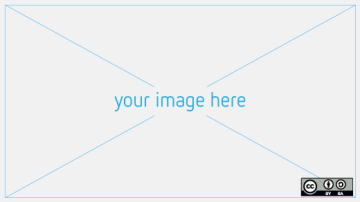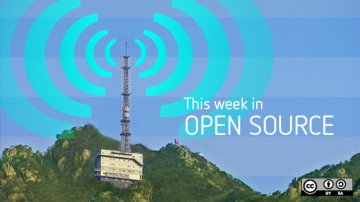
Ginny Hamilton was a community manager for EnterprisersProject.com, an online publication and community focused on how CIOs and IT leaders create business value through information technology. A former journalist, Ginny is passionate about local politics, journalism, technology, and social media. Follow her on Twitter for coverage of all those topics along with a healthy mix of cat photos.




Authored Comments
Yes! I agree with you completely. All creatives need to be educated on the opportunities that exist with open source, because I think Garth's assertion is right that many come to open source after being pulled in by a technical friend who needs help on a project. For those creatives who are aware of open source, it's still not super easy to find a project to contribute to, unless you know where to look and how to use the tools. But I love your point about how we're doing more by encouraging open sub-communities that broaden the understanding of what open actually means. That's very important too.
Building on that, I really love how the Opensource.com resource page on "What is Open Source" explains open beyond software: "We like to think of open source as not only a way to develop and license computer software, but also an attitude. Approaching all aspects of life 'the open source way' means expressing a willingness to share, collaborating with others in ways that are transparent (so that others can watch and join too), embracing failure as a means of improving, and expecting—even encouraging—everyone else to do the same.
It means committing to playing an active role in improving the world, which is possible only when everyone has access to the way that world is designed."
Robin,
The excerpt you chose to highlight is one of my favorites from the book. The questions you pose are good - and tough to answer. Emotions in the workplace are especially tricky for women in particular, because we're often told that we need to temper our emotions at work if we want to get ahead.
Years ago, at a different company, I had a much older male colleague who on several occasions in meetings asked me "why are you getting so upset" when I would raise my voice and speak quickly on certain topics. Each time it threw me off because I was never upset, I was passionate, and I was conveying it by getting visibly excited. Fortunately, I had enough sense to say just that "I'm not upset, I'm just passionate about this."
I bring this up because just as you suggest, for people who work under more conventional managers, it can be tricky to introduce appropriate emotions and passion in a place where it's not part of the culture. And an added layer is that women have to navigate a work world where they can be judged negatively for expressing emotions. Would my male manager have asked a male colleague who behaved in the same way as I did if he were upset - or would he have assumed he was just being passionate? I don't know. But it sure does go to show that not all work environments are ready for employees to outwardly express emotions and passion.
Love the questions you've raised. I look forward to seeing how others will answer them. Thanks, Robin!!